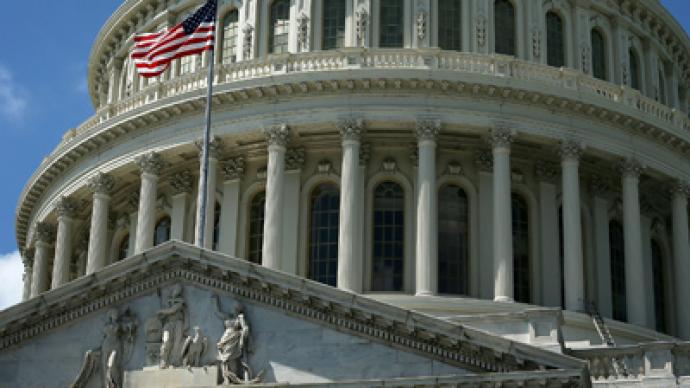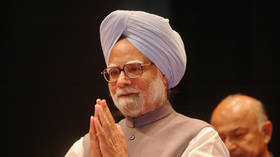Worst Congress ever back to Washington to avoid government shutdown

As US lawmakers return to work on Monday after a five-week recess, they will push aside big issues to once again try to avert a government shutdown before Sept. 30, thereby holding off on issues that could trigger another recession.
This Congress is one of the most unpopular and unproductive in modern history, reaching an all-time low approval rating of 10 percent, Gallup found. Few tasks will get done between now and the November 6 election as lawmakers return to their home districts to campaign for their seats, Reuters reports.“Everyone wants to get out of town – fast,” a top Senate aide told Reuters. Lawmakers may be around just long enough for a necessary spending bill to keep the government running, leaving behind much unfinished business.The six-month temporary spending bill that finances the US government would give the next Congress time to create a full-year plan. Failure to agree on one could cause a government shutdown, which would decrease the 112thCongress’ approval rating at a crucial time before the election.Speaker of the House John Boehner and Senate Majority Leader Harry Reid plan to introduce a spending bill this week. But after that measure is given attention, few other tasks are likely to be taken care of in the next two months.One of the most urgent of these tasks is preventing a “fiscal cliff” in January as a result of tax increases and automatic spending cuts – but Congress is holding off on it until after the election. The Dec. 31 expiration of the George W. Bush-era tax cuts, combined with more than $100 billion in automatic spending cuts could trigger another recession if Congress doesn’t come up with a solution.Aside from preventing a government shutdown, there are few tasks that Congress is willing to deal with this month.A five-year farm bill, which would replace the farm bill expiring at the end of this month, is on the table. The legislation would implement better crop safety net programs and fund the food stamp program. With 46 million Americans eligible for food stamps, putting this bill on hold too long could affect low-income families – but Congress, facing time constraints and disagreement among Democrats and Republicans, is likely to just extend the old bill, the Associated Press reports.The House may also vote on a bill called the “No More Solyndras Act” on Friday, which would take away loan guarantees for solar and wind energy companies from the Energy Department. But the bill is unlikely to pass the Senate.While members of Congress are prioritizing their campaigns and the Senate has a shortened September schedule, there will be a lot of unfinished work. Several other important issues are likely to be put on hold, including preventing a 30 percent cut in physicians’ Medicare fees, passing the annual Pentagon policy bill, a Russia free trade bill and legislation to reform the Postal Service.“My faith in Congress is pretty minimal,” Dan Ripp of Bradley Woods, a New-York based public policy research firm, told Reuters.The Postal Service is currently losing $25 million a day and could easily default on a $5.5 billion payment into its pension fund if Congress doesn’t act soon.“The metaphor for congressional ineptitude is its inability to even reform the postal service,” said Greg Valliere of the Potomac Research Group. “Members in both parties talk tough about reducing deficits, but they are scared to close a local post office because they will get angry letters from constituents.”And at a time where lawmakers are campaigning to keep their seats, they are unlikely to deal with tough issues until after the election, putting aside everything that does not have an immediate deadline and taking risks that could trigger another recession.














